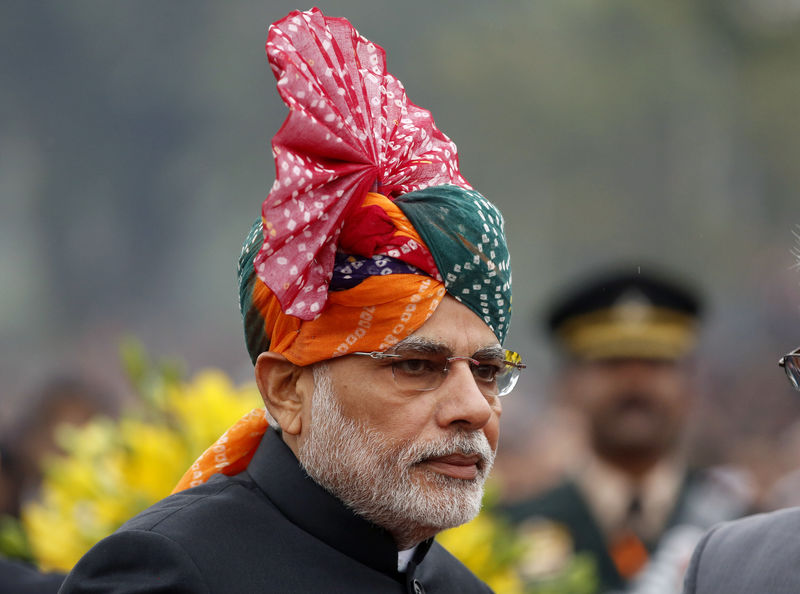By Rajesh Kumar Singh
NEW DELHI (Reuters) - The man who Indian Prime Minister Narendra Modi appointed to fix public spending has some plain advice as the government prepares its first full-year budget - don't be so dogmatic about trimming the fiscal deficit that you crimp economic growth.
Bimal Jalan, a 73-year-old former governor of the Reserve Bank of India (RBI), heads a panel tasked with suggesting measures to reduce India's subsidy bill and create space for capital spending without compromising fiscal discipline.
His expenditure management panel last month submitted to the government an interim report that is widely expected to inform the budget, which will be unveiled on Feb. 28.
In an interview with Reuters, Jalan said Modi should not shy away from loosening the deficit target to ramp up public investment.
"What I am trying to get at is that nothing should be cast in stone," he said. "Your policy should be in tune with the changing economic dynamics."
Finance Minister Arun Jaitley has vowed to stick to strict deficit targets inherited from the previous government, despite opinions expressed by several top government advisers that the economy would be better served by stimulus spending focused on relieving infrastructure bottlenecks that constrain growth.
With debt servicing devouring 42 percent of federal revenues, a higher deficit could delay further interest rate cuts by the RBI and revive threats from global credit rating agencies who have urged New Delhi to invest more without increasing borrowing.
Higher deficits, the agencies warn, would pressure India's credit rating, which is now just a notch above 'junk' status.
Jalan did not reveal what recommendations he has made in his report but he said the government needed to identify high priority areas and spend accordingly.
ECONOMIC REALITY
While a change in the methodology to measure India's national output has made it the fastest growing major economy in the world, economists say it needs to expand annually by 8 or 9 percent for decades to create jobs for a burgeoning workforce.
The new growth numbers have confounded policymakers who say the real economy does not appear so rosy.
Jalan said with corporate investment showing little sign of recovery, merchandise exports falling, rural demand floundering and inflation tumbling to a multi-year low, India can afford to use fiscal policy to lift economic growth.
"I don't think with changing economic environment, both domestic as well as international, we should keep our eyes shut," he said.
"My personal view is that we should take into account the ground reality rather than go by a target."
Jaitley has committed to trimming the fiscal deficit to an eight-year low of 3.6 percent of gross domestic product (GDP) in the year that begins in April and 3 percent the following year.
He has promised to honour his commitment, and has been given more space by lower oil prices that allowed him to end diesel subsidies and save money on other fuel subsidies.
Even so, depressed tax revenues at just 10 percent of GDP, compared to a peak of 11.9 percent in 2007-08, have left him hard pressed to provide funds for new roads, rail lines and ports.
"Obviously, you can't say instead of 3.6 percent, it should be 6.8 percent," said Jalan, who as the RBI chief in 1997 played a key role in shielding India's economy from the aftermath of the East Asian financial crisis.

"But if it is 3.8 or 3.9 percent, instead of 3.6 percent, obviously that could be done," he said, referring to the fiscal deficit.